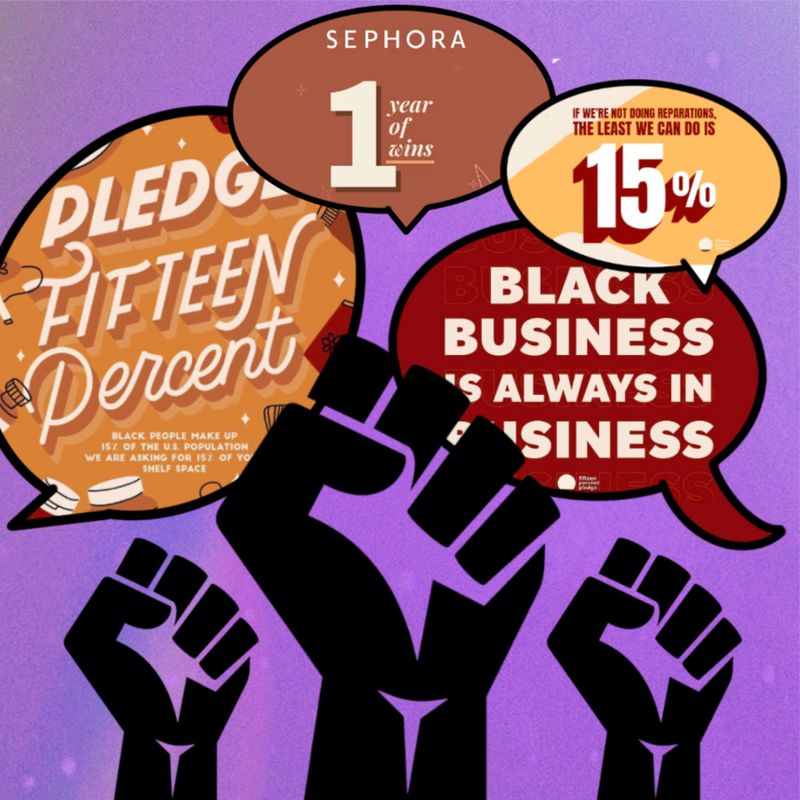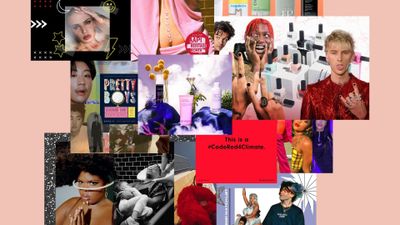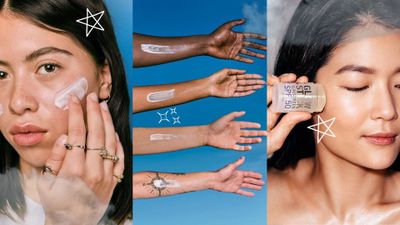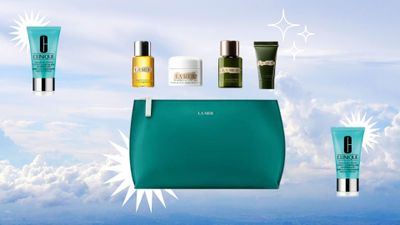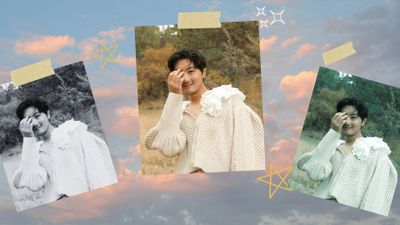In June 2020, the beauty industry was in for an awakening concerning its own racism. A year later, it’s time to see who’s actually doing the work.
It’s been just over a year since the United States had its largest wave of Black Lives Matter protests since the movement’s inception, a summer filled with long-overdue conversations about racism in America and pushes for substantial change to systemic racism in all industries and infrastructures.
These protests sparked a widespread interest in the increasing calls for improved diversity and inclusion in the beauty industry and spawned two major initiatives for brands and retailers to back up their social media support for the Black community. With the anniversary of both movements being this month, Very Good Light has decided to examine where the industry is a year later and what additional work needs to be done.
The reckoning
Last June, while the country was plunged into protests after the murders of George Floyd and Breonna Taylor and brands were pledging their support on their social media pages, Uoma Beauty founder Sharon Chuter demanded more than post on social media. She challenged brands to release the numbers of Black people they employ, including at their executive level, through her #PullUpOrShutUp campaign. Soon after, dozens of companies answered the call. From beauty brands and retailers, such as e.l.f., Supergoop!, Ulta, and Sephora, to publications and tech companies, such as Allure, Cosmopolitan, Netflix, and Twitter, organizations rushed to share their statistics.
Simultaneously, Brother Vellies founder and creative director Aurora James started the 15 Percent Pledge, which focuses on “urging major retailers to commit 15% of their shelf-space to Black-owned businesses.” Sephora, Rent the Runway, and West Elm were among the first to take the pledge.
The update
A year has passed since the start of these movements and both organizations are starting to check in and see what has changed since their commencement.
With the Pull Up or Shut Up challenge, a few brands have shown their progress with employee diversity in an annual update. On June 3, Pull Up or Shut Up’s Instagram posted that, in honor of the anniversary of Sharon’s original challenge, they reached out to over 300 companies and requested an update on their diversity numbers, though it seems that only three have reported updated statistics since.
Urban Skin Rx released the results of an employee survey in August 2020, which detailed that 61% of their total employees are Black including 64% of their managers, 44% of their executives, and 40% of their board of directors. And according to an Instagram comment from the brand’s founder, Rachel Roff, the company’s Black employment has stayed stagnant nearly a year later.
The U.S. branch of MAC Cosmetics also provided an annual update. They have had increases in nearly every category. The amount of Black people on their executive team is up to 20%, a 3% increase from this time last year. Black employee numbers at the director level or higher saw a 2.6% improvement, bringing it up to 7.1% now and the percentage of Black people with a Vice President position or higher increased by over 5%, totaling 8.7%.
However, the overall number of Black employees within their organization decreased this year by 1%, something they attribute to recent retail door closures. Their update also included a number of outlined policy changes and initiatives that have been implemented over the past year. These include mentorship programs for Black employees, a partnership with Howard University business students, unconscious bias training for all U.S. employees, expanded shade ranges for complexion products, and the continued use of Black talent in campaigns.
The 15 Percent Pledge has also seen some change in its first year. What started as a call out to four major retailers has expanded to 25 different organizations, including Sephora, Ulta, Bluemercury, Vogue, InStyle, Crate & Barrel, and even Yelp. Not only have these companies pledged to incorporate more Black-owned businesses in their organizations, but many pledge members and non-members have also started programs to support small Black-owned beauty brands.
Sephora launched Sephora Accelerate, a program that offers mentorship and support to such brands, and all eight brands from its inaugural class either have launched or are set to launch at Sephora, including smash-hit skincare brand Topicals.
Tower 28 Beauty also created the Clean Beauty Summer School, which is “a collective effort by founders and leaders in the beauty industry to support the growth of majority BIPOC-owned small clean beauty businesses.” Glossier has also started its own initiative to support Black-owned beauty brands, known as the Grant Initiative for Black-owned Beauty Businesses, and has provided $500,000 in grants to both pre and post-launch brands.
The road ahead
So, we’re a year out from what some are calling the Summer of Protest and from the start of the Pull Up or Shut Up Challenge and the 15 Percent Pledge. And while some change has already begun in the beauty industry, there is still plenty more to be done. Sharon spoke to NYLON in March about continuing the change that her challenge started.
“For Chuter, there’s grave importance in keeping the conversation going, as she believes slow, sustainable, and continuous improvement will eventually begin to unfold. She points out this issue that often stills dramatic changes in social consciousness: patience, and lack thereof… Beyond creating a culture that is adapted to suit the personalities and comfort levels of all people, Chuter says that companies need to reconstruct how they develop talent to solve their pipeline issue.”
In a recent interview with NPR, Aurora, the 15 Percent Pledge’s founder, was asked about the next steps for the organization. “It’s really about, you know, seeing a whole group of incredible Black-owned businesses really grow and scale through our pledge takers, you know?” says Aurora.
“But, you know, through our pledge takers and their contractual commitments with us, we’ve ensured now that over $4 billion is going to be going to Black entrepreneurs across this country over the next two years… I’m just excited to continue to keep growing and expanding and, you know, ultimately seeing who’s next to take the pledge.”
1) Here’s what three older members of the LGBTQ+ community want Gen Z to learn
2) How Black people changed queer history
3) 40 Black influencers and creators you should be supporting
4) Why decolonizing sexuality is important for the future of BIPOC LGBTQIA+ communities

